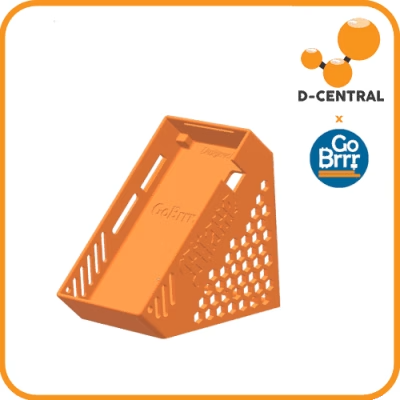In the ever-evolving landscape of global finance, Bitcoin has emerged as a beacon of innovation, challenging traditional monetary systems and reshaping the way we perceive and engage with money. At the heart of Bitcoin lies blockchain technology, a decentralized digital ledger that records all transactions across a network of computers. This groundbreaking technology ensures transparency, security, and immutability, making Bitcoin not just a cryptocurrency, but a symbol of financial autonomy and resilience.
Since its inception in 2009, Bitcoin has transcended its role as a digital currency to become a significant player in global finance and trade. Its unique attributes—decentralization, limited supply, and peer-to-peer transaction capabilities—have positioned it as a viable alternative to traditional fiat currencies, especially in a world grappling with financial instability and inflationary pressures.
The rising significance of Bitcoin in the global economic arena cannot be overstated. As more individuals and businesses embrace this digital currency, its impact on cross-border transactions, supply chain management, and even monetary policy becomes increasingly profound. Bitcoin’s ability to facilitate fast, secure, and low-cost international payments presents a compelling case for its integration into global trade practices, offering a level of efficiency and inclusivity previously unattainable with conventional financial systems.
This article seeks to explore the transformative potential of Bitcoin and its underlying blockchain technology in revolutionizing global trade practices and reshaping the economic sovereignty of nation-states. By examining Bitcoin’s role in facilitating seamless cross-border transactions, enhancing supply chain transparency, and challenging the traditional notions of monetary sovereignty, we aim to provide a comprehensive analysis of how this digital currency is not just changing the way we trade, but also redefining the very foundations of global economic governance.
Understanding Bitcoin and Blockchain
Bitcoin, often described as a cryptocurrency, digital currency, or virtual currency, is a type of money that is completely virtual. It’s like an online version of cash that can be used to buy products and services, but not all shops accept Bitcoin yet, and some countries have banned it altogether. The physical Bitcoins you see in photos are a novelty. They would be worthless without the private codes printed inside them.
History and Origin of Bitcoin
The concept of Bitcoin was introduced in a 2008 white paper titled “Bitcoin: A Peer-to-Peer Electronic Cash System,” authored by an individual or group of individuals under the pseudonym Satoshi Nakamoto. The identity of Satoshi Nakamoto remains unknown, but their vision was clear: to create a decentralized digital currency that operates without the need for a central authority, such as a bank or government. Bitcoin’s network came into existence in January 2009 with the release of the first open-source Bitcoin client and the issuance of the first bitcoins.
Key Features
- Decentralization: Unlike traditional currencies, Bitcoin operates on a decentralized network of computers. This means no single institution or government has control over the Bitcoin network.
- Limited Supply: Bitcoin’s total supply is capped at 21 million coins, a policy set by Nakamoto. This scarcity mimics the properties of precious metals like gold and contributes to Bitcoin’s value.
- Security: Bitcoin transactions are secured by cryptography. Each transaction is verified by network nodes through cryptography and recorded in a public ledger called a blockchain.
Blockchain Technology Explained
Blockchain technology is the backbone of Bitcoin and is what sets it apart from traditional currencies. At its simplest, a blockchain is a chain of blocks, where each block contains a number of transactions.
How Blockchain Works
- Blocks: Each block in the blockchain contains a list of transactions. When a block’s memory is filled, it is closed and linked to the previously filled block, forming a chain of blocks in chronological order.
- Transactions: When a Bitcoin transaction is made, it is broadcast to the network and awaits confirmation. Transactions are grouped together into blocks and then verified by miners.
- Mining: Mining is the process by which transactions are verified and added to the public ledger, the blockchain. Miners use powerful computers to solve complex mathematical problems that validate transactions. The first miner to solve the problem gets to add the next block to the blockchain and is rewarded with newly minted bitcoins.
The Role of Decentralization
Decentralization is a fundamental aspect of blockchain technology. It ensures that no single entity has control over the entire network, which enhances security and transparency. Each participant, or node, in the network has a copy of the blockchain, which means that any attempt to alter transaction information would require a consensus from the majority of participants, making fraud extremely difficult. This decentralized nature of blockchain not only secures Bitcoin transactions but also ensures that the system is transparent and open to anyone willing to participate.
Bitcoin’s Impact on Global Trade
Bitcoin has revolutionized the way cross-border transactions are conducted by significantly reducing the costs and time associated with these transactions. Traditional international transfers can be expensive, with banks and financial services charging hefty fees for currency conversion and processing. Bitcoin transactions, however, bypass these intermediaries, allowing for direct transfers between parties. This not only cuts down on fees but also accelerates transaction speeds, with Bitcoin transactions typically settling in minutes to hours, compared to days for traditional bank transfers.
Eliminating the Need for Traditional Banking Intermediaries
One of the most transformative aspects of Bitcoin in the context of global trade is its ability to operate independently of traditional banking systems. This is particularly beneficial for businesses and individuals in regions with limited access to banking services or in countries with unstable financial systems. By eliminating the need for banking intermediaries, Bitcoin opens up a world of opportunities for seamless international trade, enabling even the smallest traders to participate in the global marketplace.
Enhancing Supply Chain Transparency
Blockchain in Tracking Goods and Preventing Fraud
The blockchain technology underlying Bitcoin offers unparalleled transparency and traceability, which can be leveraged to enhance supply chain management. Each transaction on the blockchain is recorded in a tamper-proof manner, making it possible to track the movement of goods from origin to destination with unprecedented accuracy. This level of transparency is instrumental in preventing fraud and ensuring the authenticity of goods, as every step in the supply chain can be verified independently.
Case Studies of Blockchain Use in Supply Chain Management
Several companies have successfully integrated blockchain technology into their supply chain operations. For instance, Walmart partnered with IBM to implement a blockchain-based system for tracking food products, significantly improving food safety and traceability. Similarly, De Beers uses blockchain to trace the journey of diamonds from mine to retail, ensuring they are conflict-free. These case studies exemplify how blockchain can provide a secure and transparent framework for tracking goods, benefiting both businesses and consumers.
Empowering Small and Medium Enterprises (SMEs)
Lowering Barriers to International Markets
Bitcoin and blockchain technology have been instrumental in empowering SMEs by lowering the barriers to entry into international markets. Traditional barriers such as high transaction fees, currency exchange risks, and the need for established banking relationships can be prohibitive for smaller businesses. Bitcoin levels the playing field by offering a universal currency for trade, reducing transaction costs, and providing access to a global payment network without the need for intermediaries.
Case Studies of SMEs Leveraging Bitcoin for Global Trade
Numerous SMEs around the world have embraced Bitcoin to expand their international reach. For example, Overstock.com, an online retailer, was one of the first major companies to accept Bitcoin payments, opening up its products to a global customer base. Similarly, BitPesa, a digital foreign exchange and payment platform, uses Bitcoin to facilitate business transactions in Africa, offering SMEs a cheaper and faster way to engage in international trade. These examples highlight how Bitcoin and blockchain are not just tools for large corporations but are also empowering SMEs to compete on a global scale.
Economic Sovereignty and Nation States
Monetary sovereignty refers to the power of a state to exercise exclusive control over its currency and monetary policy. This includes issuing currency, managing inflation rates, and implementing monetary policy tools to influence a nation’s economy. Traditional fiat currencies, backed and regulated by governments, are the most common instruments of monetary sovereignty.
Bitcoin’s Role in Countries Facing Hyperinflation or Financial Instability
In countries plagued by hyperinflation or financial instability, such as Venezuela and Zimbabwe, Bitcoin presents a viable alternative to the faltering local currencies. In these nations, the rapid devaluation of fiat money erodes savings and disrupts economic transactions, leading citizens to seek more stable stores of value. Bitcoin, with its decentralized nature and global acceptance, offers a semblance of financial stability and independence from the local economic turmoil. For instance, in Venezuela, amidst hyperinflation, Bitcoin has become a tool for preserving wealth and facilitating transactions, with a notable increase in Bitcoin trading volumes and usage for everyday purchases.
Adoption by Nation States
El Salvador’s Adoption of Bitcoin as Legal Tender: Implications and Outcomes
In a historic move, El Salvador became the first country to adopt Bitcoin as legal tender in September 2021. This bold step was aimed at boosting the country’s economy, reducing remittance transaction costs, and increasing financial inclusion for its largely unbanked population. The adoption involved the rollout of government-backed Bitcoin wallets, incentives for businesses to accept Bitcoin, and initiatives to educate the population about cryptocurrency. While the move has faced criticism and challenges, including volatility concerns and implementation hurdles, it represents a significant experiment in national cryptocurrency adoption, with potential long-term benefits for economic inclusivity and remittance efficiency.
Potential for Other Nations to Follow Suit and the Implications for Global Economic Policy
El Salvador’s adoption of Bitcoin has sparked a global debate on the feasibility and implications of cryptocurrencies as legal tender. Other nations, particularly those with similar economic profiles or challenges, are closely watching El Salvador’s experiment. Countries with high remittance inflows, unstable currencies, or significant unbanked populations may consider similar moves to leverage the benefits of cryptocurrency. However, widespread adoption of Bitcoin by nation-states would have profound implications for global economic policy, including challenges to monetary sovereignty, impacts on international trade, and the need for comprehensive regulatory frameworks to address issues of volatility, security, and financial integrity. The potential shift towards cryptocurrencies could redefine the global financial landscape, prompting a reevaluation of traditional monetary systems and international economic relations.
Regulatory and Governance Challenges
Bitcoin operates on a decentralized governance model, which is fundamentally different from the centralized control seen in traditional financial systems. This model is rooted in Bitcoin’s open-source nature, where its protocol and software are developed, reviewed, and improved upon by a global community of contributors. Changes to the Bitcoin protocol require broad consensus among these contributors, particularly those who run the network’s nodes and miners who secure the network. This consensus-based approach ensures that no single entity can unilaterally impose changes, maintaining Bitcoin’s decentralized ethos.
Challenges and Benefits of a Decentralized Financial System
The decentralized governance of Bitcoin presents both challenges and benefits. On one hand, it ensures a high degree of security and resistance to censorship or manipulation, as changes to the network must be widely accepted by the community. This model also promotes transparency and inclusivity, allowing anyone to participate in the network’s development and decision-making processes.
On the other hand, achieving consensus for upgrades or changes can be a slow and complex process, potentially hindering the network’s ability to quickly adapt to new challenges or technological advancements. Additionally, the lack of a central authority can complicate dispute resolution and accountability, posing challenges for users unfamiliar with the decentralized nature of the system.
Regulatory Responses to Bitcoin
Overview of Global Regulatory Landscape for Cryptocurrencies
The regulatory landscape for Bitcoin and other cryptocurrencies varies significantly across the globe, reflecting a wide range of governmental attitudes and policies. Some countries have embraced digital currencies, enacting clear regulations that promote their growth while ensuring consumer protection and financial stability. Others have taken a more cautious or even hostile approach, imposing strict regulations or outright bans due to concerns over fraud, money laundering, and financial stability.
Regulatory frameworks typically address aspects such as the legal status of cryptocurrencies, licensing requirements for exchanges and wallet providers, anti-money laundering (AML) and counter-terrorism financing (CTF) compliance, taxation, and consumer protection measures.
Balancing Innovation with Consumer Protection and Financial Stability
One of the key challenges for regulators is balancing the need to foster innovation and the potential benefits of cryptocurrencies with the imperative to protect consumers and maintain financial stability. Effective regulation should provide clear guidelines and a stable environment for businesses and investors, while also implementing safeguards against fraud, market manipulation, and systemic risks.
This balance requires ongoing dialogue between regulators, industry participants, and other stakeholders to understand the evolving landscape of digital currencies and blockchain technology. It also necessitates a flexible regulatory approach that can adapt to the rapid pace of innovation in the cryptocurrency space, ensuring that regulations remain relevant and effective in promoting safe and responsible use of digital currencies.
Case Studies and Real-World Applications
Success Stories of Bitcoin in Global Trade
Examples of Businesses and Countries Integrating Bitcoin
- Overstock.com: One of the first major online retailers to accept Bitcoin payments, Overstock.com opened its doors to the global Bitcoin community, significantly increasing its market reach. The company not only accepted Bitcoin for its products but also retained part of its Bitcoin payments as an investment, showing confidence in the cryptocurrency’s value.
- BitPesa: This digital foreign exchange and payment platform uses Bitcoin to facilitate business transactions across Africa. BitPesa enables African businesses to send and receive payments globally in a matter of hours, as opposed to days or weeks with traditional banking systems, by leveraging Bitcoin’s fast transaction times and low fees.
- El Salvador: As the first country to adopt Bitcoin as legal tender, El Salvador has embarked on a national experiment integrating Bitcoin into its economy. The government introduced the Chivo wallet, allowing citizens to make everyday transactions in Bitcoin and offering incentives for businesses to accept the cryptocurrency.
Lessons Learned and Best Practices
Analyzing Challenges Faced and Solutions Implemented
- Volatility Management: One of the primary challenges faced by businesses accepting Bitcoin is its price volatility. Companies like Overstock.com have addressed this by converting a portion of Bitcoin payments into fiat currency to manage risk, while retaining some Bitcoin to benefit from potential price appreciation.
- Regulatory Compliance: Navigating the complex regulatory environment is crucial for businesses integrating Bitcoin into their operations. BitPesa, for example, has worked closely with regulators in various African countries to ensure compliance with local laws and regulations, building trust and stability for its platform.
- User Education and Adoption: El Salvador’s initiative to adopt Bitcoin nationally highlighted the importance of user education in driving adoption. The government undertook extensive efforts to educate its citizens about Bitcoin, providing resources and support to ensure people could effectively use the cryptocurrency for daily transactions.
Best Practices for Integrating Bitcoin into Global Trade
- Implementing Risk Management Strategies: Businesses should employ strategies to manage the risks associated with Bitcoin’s volatility, such as using payment processors that instantly convert Bitcoin to fiat or adopting hedging techniques.
- Staying Informed on Regulatory Changes: Continuous monitoring of the regulatory landscape and engaging with policymakers can help businesses remain compliant and advocate for favorable regulations.
- Fostering User Adoption: For countries and businesses, promoting widespread adoption of Bitcoin requires significant investment in user education, providing easy-to-use tools and resources to facilitate the transition to digital currency.
- Leveraging Bitcoin’s Strengths: Businesses should capitalize on Bitcoin’s unique advantages, such as its borderless nature and low transaction fees, to open up new markets and reduce costs in international trade.
These case studies and lessons learned highlight the transformative potential of Bitcoin in global trade, demonstrating how businesses and countries can navigate challenges and leverage digital currency to foster economic growth and innovation.
Conclusion
The exploration of Bitcoin’s impact on global trade and the sovereignty of nation-states reveals a complex yet promising landscape where digital currency stands at the forefront of economic innovation. Bitcoin, with its decentralized nature, limited supply, and robust security, presents a compelling alternative to traditional fiat currencies, challenging the status quo of financial and governmental institutions worldwide.
Bitcoin’s potential to transform global trade is evident in its ability to facilitate cross-border transactions with unprecedented efficiency, reduce transaction costs, and enhance supply chain transparency. These capabilities not only streamline international commerce but also empower small and medium enterprises to participate in the global market, breaking down barriers that have historically favored large corporations.
Moreover, Bitcoin’s adoption by countries like El Salvador underscores its potential to reshape nation-states, offering a glimpse into a future where digital currencies coexist with, or even replace, traditional fiat currencies. This bold experiment highlights the dual role of Bitcoin as both a catalyst for economic inclusion and a challenge to established monetary systems, prompting a reevaluation of what constitutes monetary sovereignty in the digital age.
However, the journey towards widespread adoption of Bitcoin is not without its challenges. Volatility, regulatory uncertainty, and the need for user education are among the hurdles that must be navigated. As such, there is a pressing need for continued research into the implications of Bitcoin on global trade and national economies, as well as the development of responsible regulatory frameworks that balance innovation with consumer protection and financial stability.
In conclusion, the call to action for policymakers, businesses, and individuals is clear: to engage with Bitcoin and blockchain technology thoughtfully and proactively. By fostering an environment that encourages the adoption of Bitcoin while addressing its challenges, we can harness the full potential of digital currencies to create a more inclusive, efficient, and transparent global economic system. The future of global trade and the reshaping of nation-states may very well hinge on our collective ability to embrace and integrate the revolutionary promise of Bitcoin.
FAQ
What is Bitcoin and how does it work?
Bitcoin is a decentralized digital currency that enables peer-to-peer transactions without the need for intermediaries like banks. Transactions are verified by network nodes through cryptography and recorded on a public ledger called a blockchain.
What are the key features of Bitcoin?
The key features of Bitcoin include decentralization, a limited supply capped at 21 million coins, and secure transactions through cryptography. These features underpin its potential as an alternative to traditional fiat currencies.
How does Bitcoin impact global trade?
Bitcoin facilitates fast, secure, and low-cost international payments, eliminating the need for traditional banking intermediaries. This opens up global trade opportunities, especially for businesses and individuals in regions with limited access to banking services or facing financial instability.
How does blockchain technology enhance supply chain transparency?
Blockchain technology, the backbone of Bitcoin, offers unparalleled transparency and traceability in supply chain management. It records each transaction in a tamper-proof manner, enabling the tracking of goods from origin to destination with unprecedented accuracy.
Who benefits from Bitcoin and Blockchain in global trade?
Small and Medium Enterprises (SMEs) benefit significantly from Bitcoin and blockchain by lowering entry barriers to international markets, reducing transaction costs, and providing access to a global payment network without needing traditional banking relationships.
What challenges does Bitcoin face in wider adoption?
Challenges include price volatility, regulatory uncertainty, and the need for user education. Effective risk management strategies, staying informed on regulatory changes, and fostering user adoption are crucial for integrating Bitcoin into global trade practices.
What was the significance of El Salvador’s adoption of Bitcoin?
El Salvador’s adoption of Bitcoin as legal tender marked a historic move aimed at boosting its economy, reducing remittance costs, and increasing financial inclusion. It represents a significant experiment in national cryptocurrency adoption with potential implications for global economic policy.












